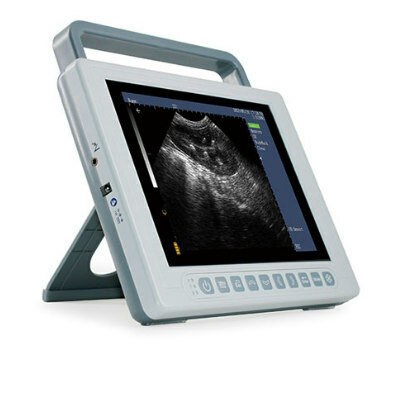MRI Imaging of Brain’s Nerve Fibers Provides Clues into Neurodegenerative Diseases
By MedImaging International staff writers
Posted on 14 Nov 2012
New magnetic resonance imaging (MRI) research has yielded major insights into what could provide a new approach for enhanced detection and monitoring of neurodegenerative disorders such as multiple sclerosis. Posted on 14 Nov 2012
The new study, published November 6, 2012, in the journal Proceedings of the National Academy of Sciences of the United States of America (PNAS), revealed why brain images generated by using cutting-edge MRI technology that is extremely sensitive to the direction in which nerve fibers move. The white matter of the brain is comprised of billions of microscopic nerve fibers that pass data in the form of tiny electrical signals. Each nerve fiber is encased by a sheath formed from a lipid compound, called myelin, which increases the speed at which these signals move. Earlier research has revealed that the appearance of white matter in MR images relies on the angle between the nerve fibers and the track of the very strong magnetic field used in an MRI scanner.
Based on knowledge of the molecular structure of myelin, the physicists who conducted the research, from the University of Nottingham’s Sir Peter Mansfield Magnetic Resonance Center (UK), designed a new model in which the nerve fibers are represented as long, thin hollow tubes with unique (anisotropic) magnetic characteristics. This model clarifies the reliance of image contrast on fiber orientation in white matter and potentially allows information about the nerve fibers (such as their size and direction) to be deduced from MR images.
Research fellow Dr. Samuel Wharton said, “While most MRI-based research focuses on tissue measurements at the millimeter length scale, our experimental scans on healthy human volunteers and modeling of the myelin sheath shows that much more detailed microscopic information relating to the size and direction of nerve fibers can be generated using fairly simple imaging techniques. The results will give clinicians more context in which to recognize and identify lesions or abnormalities in the brain and will also help them to tailor different types of scan to a particular patient.”
Head of the School of Physics and Astronomy, Prof. Richard Bowtell, added, “These results should be an important boost to the world of biomedical imaging which is a key research priority here at The University of Nottingham. We have a strong heritage of groundbreaking work in MRI at the Sir Peter Mansfield Magnetic Resonance Center and the work was carried out using our 7T scanner which is the strongest magnetic field system for scanning human subjects in the UK.”
“This research opens new avenues of looking at the nerve fibers in the brain. The more we understand about the nerves and the myelin around them, the more successful we are in studying brain diseases, such as multiple sclerosis. The recent advances in our understanding and treatments of MS are based on basic, solid research such as the one presented by Dr. Wharton and Bowtell,” stated Dr. Nikolaos Evangelou, clinical associate professor specializing in multiple sclerosis at the Nottingham University Hospitals Trust.
These new findings should provide a better determination of the effects of nerve fibers and their alignment in an MRI scanner and has potentially useful applications in the diagnosis and monitoring of brain and nervous system diseases such as multiple sclerosis, where there are links to myelin loss.
Related Links:
University of Nottingham’s Sir Peter Mansfield Magnetic Resonance Center














